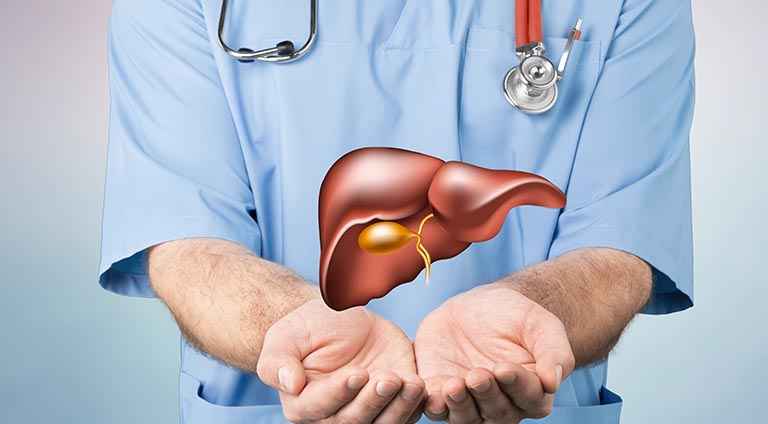According to the World Cancer Research Fund (WCRF), liver cancer is the sixth most common cancer worldwide. If categorized by gender, the cancer is the fifth most commonly occurring cancer in men and ninth in women. If you consider 2018, an astounding 8,40,000 new cases were registered across the world. It is essential that we pay attention to liver cancer, spread awareness and learn ways to reduce the risk factors that can cause the disease. Let’s begin by understanding the functions of the liver.
LIVER: WHY IS IT ONE OF THE MOST ESSENTIAL ORGANS OF THE HUMAN BODY?
Liver is the largest internal organ of the body. It is situated on the upper-right side of the abdomen. Hundreds of essential functions of the human body are associated with the liver. Along with gallbladder and pancreas, it performs an important function of digesting, absorbing and processing whatever food you consume. The liver helps in the production of bile to eliminate waste. It regulates the chemicals in the blood, processes and detoxifies it. It metabolizes the drugs and produces cholesterol and special proteins that help in blood clotting.
LIVER CANCER: LEARN THE DETAILS
The liver is made up of several types of cells and so, different tumors can form in the liver cells. Some tumors can be benign (non-cancerous) and others can be cancerous. Now, when it comes to cancerous tumors in the liver there are divided into two main types:
- Primary Liver Cancer – A cancer that begins in the liver cells, mainly, is called primary liver cancer. Types of primary liver cancer include hepatocellular carcinoma (HCC), intrahepatic cholangiocarcinoma, hepatoblastoma, etc.
- Secondary Liver Cancer – Metastatic liver cancer is one which did not start from the liver but has spread to the organ.
Primary liver cancer is very common in underdeveloped countries and that’s what needs our attention today.
WHAT CAUSES LIVER CANCER (HEPATOCELLULAR CARCINOMA)?
Let’s take a look at the factors that increase the risk of Hepatocellular Carcinoma (HCC) in the human body:
- Gender: HCC is more common among males than in females. However, the fibrolamellar subtype of HCC is more visible in females.
- HBV/HCV: Chronic infection of Hepatitis B (HBV) or Hepatitis C (HCV) increases the risk of liver cancer in the human body.
- Cirrhosis: The disease damages liver tissue and scars them irreversibly. Cirrhosis increases the chances of liver cancer.
- A few types of liver diseases such as hemochromatosis and Wilson’s disease can increase the risk of HCC.
- Non-alcoholic fatty liver disease, high blood sugar, etc. can also put you at risk.
- Excessive consumption of alcohol, tobacco and long-term use of anabolic steroids.
- Being overweight/obese can also increase the chances of liver cancer.
- Exposure to aflatoxins can increase the risk of liver cancer.
ARE THERE ANY CLEAR SYMPTOMS OF LIVER CANCER?
- Unexplained weight loss
- Loss of appetite
- Nausea or vomiting
- Enlarged liver or spleen
- Abdominal pain or swelling in the belly
- Abdominal bruising and bleeding
- Itching
- Jaundice
- White chalky stools, etc.
Please remember that the above-mentioned symptoms are not exclusive to liver cancer. If you have the symptoms, it doesn’t mean that you have liver cancer. However, none of the symptoms of digestive distress should be taken lightly because these underlying problems can be a sign of a bigger issue. If you have a couple of symptoms that manifest the existence of liver cancer, visit an experienced liver surgeon immediately. The doctor will order a few tests including blood tests, liver function tests, kidney function tests, CT-scan MRI, ultra-sounds, Angiography, biopsy, etc.
LIVER CANCER: THE COURSE OF TREATMENT
If liver cancer is confirmed by your surgical gastroenterologist, he will suggest a treatment depending on the type of cancer and the stage of disease. Your treatment may include:
- Curative Treatment: Treatment that includes procedures and surgeries to overcome the disease.
Hepatectomy (Liver Resection Surgery)
Liver Transplantation
Radiofrequency Ablation (RFA)
- Palliative Treatment: It focuses on offering relief to terminally-ill patients.
TACE/TARE – Trans-arterial chemo embolization or radio embolization
Medical treatment – targeted chemotherapy
When it comes to liver cancer, early detection becomes of prime importance. Liver cancer has lower survival rates because the patient is diagnosed with the disease at a very late stage. So, it is very important to be alert and proactive. When you first notice any persistent problem with the digestive tract, it is best to visit an experienced surgical gastroenterologist.
Do not ignore the symptoms of liver cancer. Early detection and accurate treatment by a liver specialist can save your life. Visit the experienced surgical gastroenterologist in Surat today to seek medical treatment for liver cancer. Book an appointment with Dr. Jay Chokshi, South Gujarat’s first National Board Certified HPB and GI surgeon.





